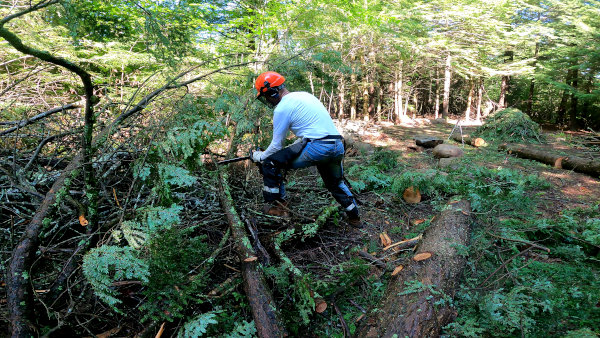October of 2002 was the closest I ever came to suicide. After suffering many months of intense depression, anxiety, and lack of sleep, I had started on the planning phase. How do I execute it? Who should I leave my car to?
There was no major external event that spun me into such a bad place. It can be hard to explain this kind of state to someone who’s never experienced it – attitude adjustments, perspective shifts, vacations to pretty places – none of these make a dent in the interior blackness. My body became a shell shuffling slowly, my gaze as if from the bottom of a long well.
The good things I knew were a dim light above, and I was a long way down.
I never made it past the planning phase, and it wasn’t because I suddenly started feeling better. Salvation was an oddly intellectual exercise, with this theme: “I don’t feel like I’m ever going to feel any better than I do right now, and this is not worth living for. But what if I just wait. Wait six months and see how I feel.” I used my higher cognitive functions to stall for time, and can write these words now because it worked.
I use a more minor version of this trick all the time in my day to day life: this last week I spent many hours cleaning up a few big hemlocks that we brought down, and there were a few days I didn’t feel like doing it. “Just drive out there and do a little bit” I said to myself, and that was all I needed to jump-start a full day’s work.

It’s amazing that my emotions can be so motivating to behavior, yet so fleeting.
After spending most of my teens and twenties in a pretty repressed emotional state, I leaned in and learned how to feel my feelings and express them. The result was a period where my intellect fell out of personal favor, and I spent more time listening to my body, feelings, and intuition. It was a rough ride, but worth it – I came out the other side feeling so much more alive, more fully me. If you’ve never been a person who’s lived only in your head, congratulations, because it sucks.
Looking back on that transition, it was critical for me to develop greater awareness and sensitivity to my feelings, but a shame that it came at the expense of devaluing a tool that quite literally saves my life.
I started out unconsciously rejecting my deeper emotions, then recovered those and rejected the value of my mind. It was as if I believed only one way of being could be fundamental, and I had to choose.
Now that I’ve been disabused of that reality, I make a different choice. I choose both. I love my emotions, even with their temperamental swings, and treasure how full life becomes when they are all embraced. And I love my mind, and its cold, dogged calculations for my survival.